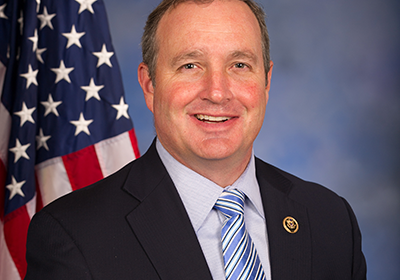Representative Jeff Duncan Announces He Will Not Seek Re-Election

Washington, D.C. — Congressman Jeff Duncan issued the following statement regarding his decision not to seek re-election for an 8th term to the United States House of Representatives:
“After 9/11, I felt a calling to serve my State or Nation in some capacity. Serving in both the South Carolina State Legislature and the United States House of Representatives has been the culmination of that calling. I am blessed to have worked with amazing men and women in Congress. None have been more impressive than my DC and District staff, serving the constituents of the Palmetto State with efficiency and dedication.
I am proud of my conservative voting record and the opportunities over these 14 years to lead the State and Nation on many issues important to South Carolina and the United States, especially in fiscal responsibility and American energy.
At some point in a career, one needs to step aside and allow others to bring fresh ideas and abilities into the fight for Liberty, just as I have.
Representing the 3rd District of South Carolina in this capacity has been a privilege and honor. Now, it is time for another man or woman to serve our District in the next Congress. I will not seek re-election to the US House of Representatives.”
Congressman Duncan was the first Congressman elected from Laurens County in over 100 years and the first South Carolinian to serve a full term on the House Energy & Commerce Committee since Congressman Albert Watson in 1970. Rising to serve as Chairman of the Subcommittee on Energy, Climate, and Grid Security, Duncan is also the highest-ranking South Carolinian to serve on the House Energy & Commerce Committee since Congressman Issac Holmes in 1843.
During Duncan’s tenure in Congress, he chaired three subcommittees for three separate full committees: Energy, Climate, & Grid Security Subcommittee for the House Energy and Commerce Committee, where he currently serves; Chairman of the Oversight and Management Efficiency Subcommittee for the Committee on Homeland Security, and Chairman of the Western Hemisphere Subcommittee for the House Foreign Affairs Committee.
During his time in Congress, Duncan served as a bridgebuilder to various factions within the Republican Conference. He was one of the few to serve in leadership on the Whip Team, hold a position as a steering committee member for the Republican Study Committee, and serve on the House Freedom Caucus simultaneously. A consistent conservative, Duncan holds lifetime conservative ratings of 95% from FreedomWorks, 93% from Heritage Action, and 94% from the Club for Growth.
Duncan worked on a diverse set of issue areas during his time in Congress, including assisting in securing funding and authorization for the Port of Charleston deepening project that now boasts an annual economic impact of $87 billion for the state. When the Obama Administration identified South Carolina as a potential location to relocate terrorists held at Guantanamo Bay, Cuba, Duncan was the first to draft legislation to prevent the move.
The son of a father who spent his life working in textiles, Duncan has been active in trade policy, personally testifying before and conducting oversight of the Office of the United States Trade Representative on behalf of businesses operating in South Carolina.
A lifelong conservationist and outdoorsman, Duncan was the co-chair of the Congressional Sportsman’s Caucus, the largest bipartisan and bicameral caucus in Congress. Through this position, Duncan worked to promote policies that applied common sense approaches to conserve wildlife and habitat for the next generation while expanding access to the outdoors.
Over the years, much of Duncan’s legislative work has focused on energy policy. Duncan was responsible for the passage of the Outer Continental Shelf Transboundary Hydrocarbon Agreements Authorization Act, which opened up over 1.5 million acres in the Gulf of Mexico for commercial exploration and use. He was also instrumental in reforming the administrative interpretation of the Migratory Bird Treaty Act, a major legal hurdle in expanding the deployment of many energy sources, particularly wind power. Duncan successfully led Congress’s legal challenge to the US Supreme Court to support the Atlantic Coastal Pipeline. Additionally, he played a pivotal role in securing language in the Fiscal Responsibility Act to improve energy permitting and approve the Mountain Valley Pipeline to bring vital natural gas to the Carolinas. Most recently, Duncan introduced and helped shepherd through committee his bipartisan Atomic Energy Advancement Act, the most substantive update to nuclear energy policy in more than a generation.
